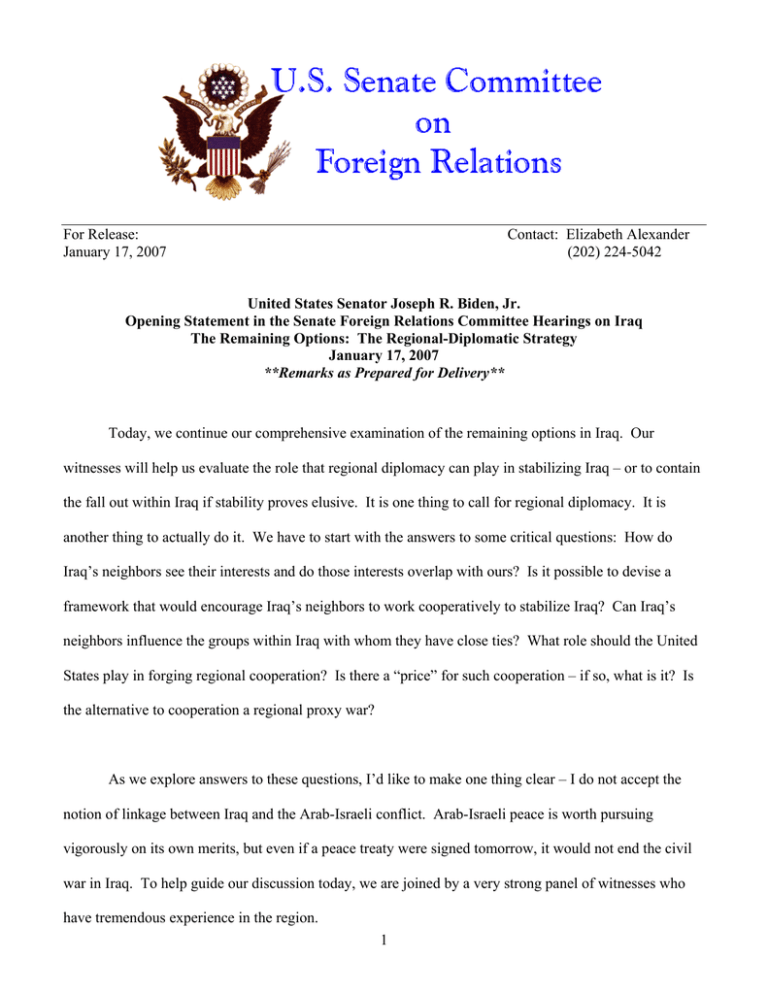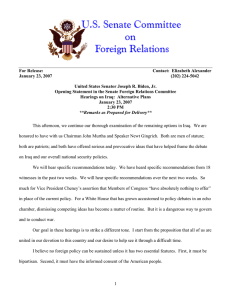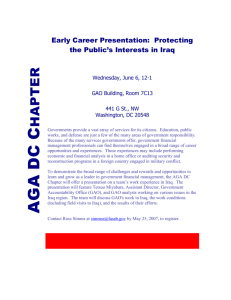For Release: Contact: Elizabeth Alexander January 17, 2007
advertisement

For Release: January 17, 2007 Contact: Elizabeth Alexander (202) 224-5042 United States Senator Joseph R. Biden, Jr. Opening Statement in the Senate Foreign Relations Committee Hearings on Iraq The Remaining Options: The Regional-Diplomatic Strategy January 17, 2007 **Remarks as Prepared for Delivery** Today, we continue our comprehensive examination of the remaining options in Iraq. Our witnesses will help us evaluate the role that regional diplomacy can play in stabilizing Iraq – or to contain the fall out within Iraq if stability proves elusive. It is one thing to call for regional diplomacy. It is another thing to actually do it. We have to start with the answers to some critical questions: How do Iraq’s neighbors see their interests and do those interests overlap with ours? Is it possible to devise a framework that would encourage Iraq’s neighbors to work cooperatively to stabilize Iraq? Can Iraq’s neighbors influence the groups within Iraq with whom they have close ties? What role should the United States play in forging regional cooperation? Is there a “price” for such cooperation – if so, what is it? Is the alternative to cooperation a regional proxy war? As we explore answers to these questions, I’d like to make one thing clear – I do not accept the notion of linkage between Iraq and the Arab-Israeli conflict. Arab-Israeli peace is worth pursuing vigorously on its own merits, but even if a peace treaty were signed tomorrow, it would not end the civil war in Iraq. To help guide our discussion today, we are joined by a very strong panel of witnesses who have tremendous experience in the region. 1 Ambassador Richard Haass is the President of the Council on Foreign Relations. From 2001 to 2003, he was the Director of the Policy Planning Staff at the State Department. He also is the author of a first-rate article entitled “The New Middle East” in a recent issue of Foreign Affairs magazine. Ambassador Dennis Ross’s name is synonymous with the Arab-Israeli peace process. For more than 12 years and across two Administrations – one Republican and one Democratic – he led our nation’s efforts to secure a lasting peace in the Middle East. He is currently Counselor and the Ziegler Distinguished Fellow at the Washington Institute for Near East Policy. Dr. Vali Nasr is a Professor of National Security Affairs at the Naval Postgraduate School. His recent book, the The Shi’a Revival has made a significant contribution to our understanding of the forces unleashed by the Iraq war. We are fortunate to have you with us today and look forward to your testimony. # 2





